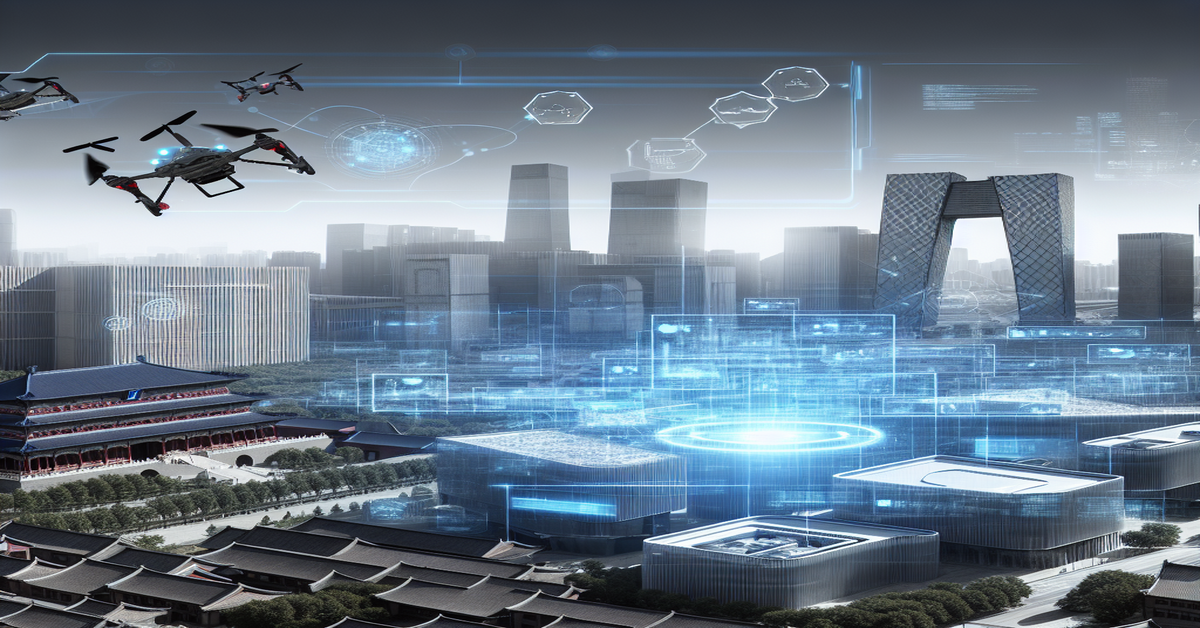AI: The New Frontier of Global Power Dynamics
The rapid advancement of artificial intelligence (AI) is transforming the global landscape in ways that were once unimaginable. As nations race to harness the power of this groundbreaking technology, the implications for geopolitics, economics, and society at large are becoming increasingly apparent. In a recent article, “[AI Could Be As Deadly As Nuclear Weapons](https://finance.yahoo.com/news/ai-could-deadly-nuclear-weapons-200017227.html),” the author draws a striking comparison between the potential impact of AI and the destructive power of nuclear weapons.
China’s AI Ambitions
At the forefront of this AI revolution is China, a nation that has made significant strides in AI research and development. The Chinese government has identified AI as a key strategic priority and has invested heavily in the technology, with the goal of becoming a global leader in the field by 2030. This ambitious plan has already yielded impressive results, with Chinese companies and researchers making breakthroughs in areas such as facial recognition, natural language processing, and autonomous systems.
China’s AI advancements are not just a matter of technological prowess; they have the potential to fundamentally alter the balance of power on the global stage. As the author notes, “**China’s AI ambitions are not just about economic competitiveness, but about reshaping the global order.**” The integration of AI into various aspects of Chinese society, from surveillance systems to military applications, raises concerns about the country’s growing influence and the potential for AI to be used as a tool of authoritarianism.
AI in the Military Domain
One of the most significant areas where AI is poised to have a profound impact is in the military domain. As nations develop increasingly sophisticated AI-powered weapons systems, the nature of warfare is likely to change dramatically. China, in particular, has made significant investments in military AI, with a focus on developing autonomous drones, cyber warfare capabilities, and AI-enhanced command and control systems.
The integration of AI into military systems raises a host of ethical and strategic concerns. As the author points out, “**The use of AI in warfare could lower the threshold for conflict and make it harder to de-escalate tensions.**” There are also questions about the accountability and transparency of AI-powered weapons systems, as well as the potential for unintended consequences and the risk of AI systems being hacked or manipulated.
The Need for International Cooperation
Given the far-reaching implications of AI, there is a growing recognition of the need for international cooperation and regulation in this area. As the author notes, “**The development of AI is outpacing the ability of governments and international institutions to regulate it.**” Without clear guidelines and standards for the ethical use of AI, there is a risk that the technology could be misused or exploited by bad actors.
Efforts are underway to address these challenges, with initiatives such as the [Partnership on AI](https://www.partnershiponai.org/) bringing together leading technology companies, academic institutions, and civil society organizations to develop best practices and promote the responsible development of AI. However, much more needs to be done to ensure that AI is developed and used in a way that benefits humanity as a whole.
The Economic Impact of AI
Beyond the military and geopolitical implications, AI also has the potential to transform the global economy in profound ways. As AI systems become more sophisticated and integrated into various industries, from healthcare to finance to manufacturing, the nature of work is likely to change dramatically. Some experts predict that AI could lead to widespread job displacement, as machines take over tasks previously performed by humans.
At the same time, AI also has the potential to create new opportunities and drive economic growth. Companies that are able to effectively harness the power of AI may gain a significant competitive advantage, while nations that invest in AI research and development may position themselves as leaders in the global economy.
Conclusion
The rapid advancement of AI is a double-edged sword, with the potential to bring both great benefits and great risks. As nations like China continue to push the boundaries of what is possible with this technology, it is essential that we have a robust public discourse about the implications of AI and work together to ensure that it is developed and used in a responsible and ethical manner.
The comparison between AI and nuclear weapons is a stark reminder of the power and potential danger of this technology. Just as the development of nuclear weapons changed the course of history, the rise of AI has the potential to reshape the world as we know it. It is up to us to ensure that we harness this power for good and work towards a future in which AI serves the interests of all humanity.
#ArtificialIntelligence #GlobalPower #ChinaAI #FutureOfTech
Share your thoughts on the implications of AI for global power dynamics. How can we ensure that AI is developed and used in a responsible and ethical manner? Join the conversation and let’s work together to shape the future of this transformative technology.
-> Original article and inspiration provided by Opahl Technologies
-> Connect with one of our AI Strategists today at Opahl Technologies


